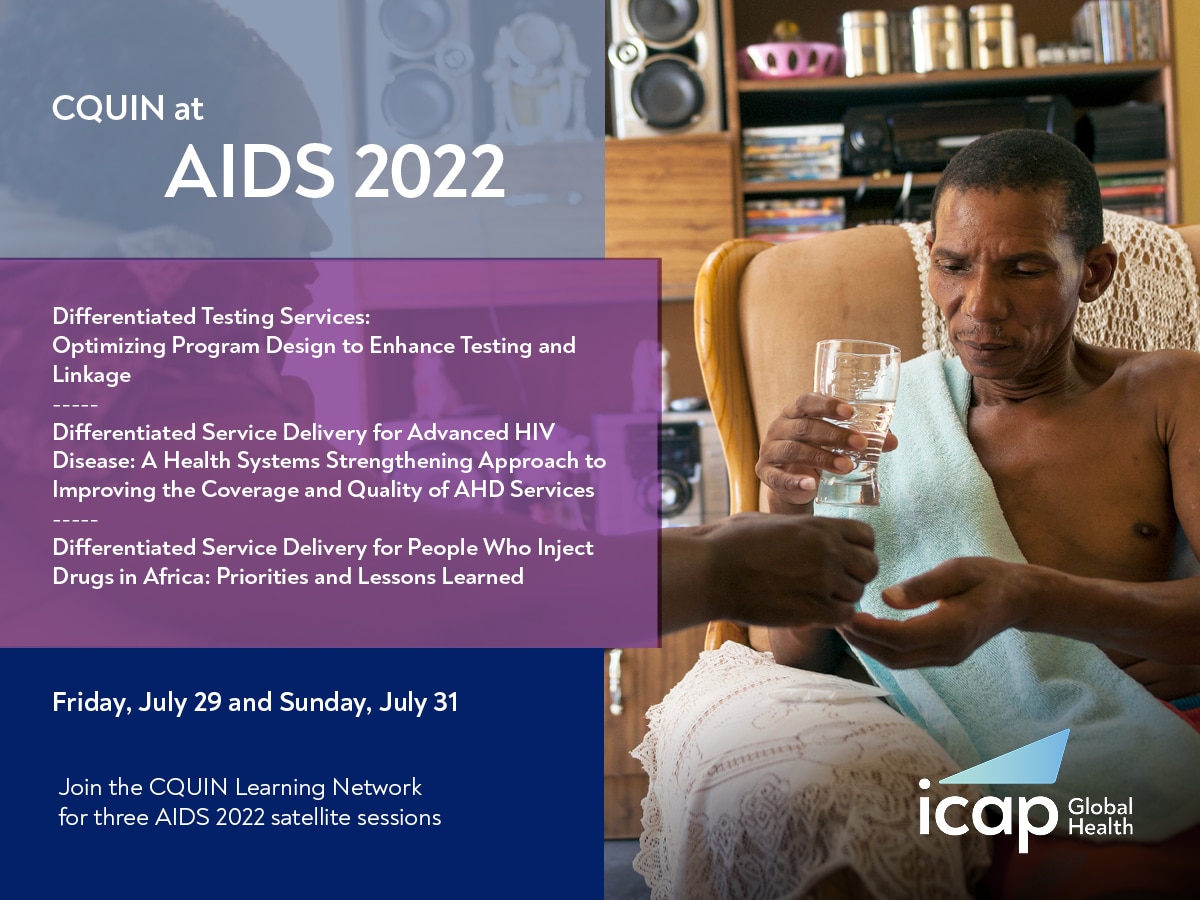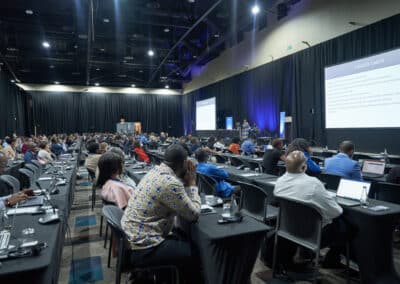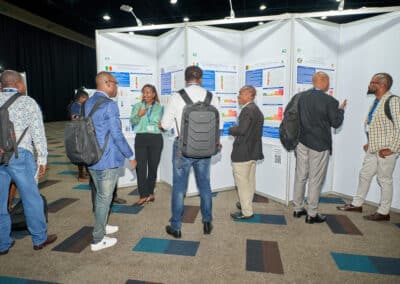The International AIDS Society (IAS) will bring together thousands of leading minds in HIV to explore the latest HIV science at the 24th International AIDS Conference in Montreal, Canada, from July 29th to August 2nd, 2022.
For ICAP’s CQUIN Network, AIDS 2022 will provide an opportunity to showcase best practices and lessons learned in differentiated service delivery (DSD) for HIV testing, advanced HIV disease, and HIV services for people who inject drugs (PWID).
CQUIN will host three satellite sessions in collaboration with partner organizations.
Differentiated Testing Services: Optimizing Program Design to Enhance Testing and Linkage
As CQUIN launches a new stream of work focused on differentiated HIV testing and linkage (dHTS), ICAP and the Clinton Health Access Initiative (CHAI) will co-host a satellite session to explore the future of HIV testing and linkage services.
“The HIV testing landscape is evolving rapidly,” said Miriam Rabkin, MD, MPH, ICAP director for health systems strategies. “Newer approaches, such as HIV self-testing, dual HIV-syphilis testing, and new rapid testing algorithms, provide a larger toolkit, as do approaches like social network testing services, partner notification services, and more. This creates important strategic choices for ministries of health, as they develop dHTS strategies and think about the optimal mix of differentiated testing and linkage strategies for different settings.”
“While linkage to treatment for people who test positive for HIV remains critical, there is also growing advocacy to improve linkage to prevention services for high-risk people who test negative,” adds John Bosco, MBChB, MPH, MSc, CQUIN regional clinical advisor and lead for CQUIN’s dHTS stream of work. “Status-neutral services that position testing as important for the health of both HIV-negative and HIV-positive people can enhance uptake, decrease stigma, and improve outcomes.”
Participants attending the satellite can expect framing remarks highlighting key points from the 2021 “Future of HIV testing” expert consultation, as well as case studies on community engagement in dHTS, HIV self-test use in Uganda, and differentiated testing services for men who have sex with men in Kenya.
This satellite session led by CQUIN’s advanced HIV disease (AHD) community of practice will feature the current WHO AHD global guidance, findings from a CQUIN AHD capability maturity model self-assessment by 13 ministries of health, and AHD case studies from Nigeria and Eswatini.
Discussions will include insights into the need for a health systems approach to AHD implementation in countries and health system challenges facing countries in the initial phases of AHD program implementation.
“CQUIN aims to continue fostering the co-creation of tools and resources to bridge the gaps in AHD implementation,” said Maureen Syowai, MBChB, MSc, ICAP’s regional technical specialist and lead for CQUIN’s AHD community of practice. “We hope to work with countries to improve their AHD quality standards and indicators and AHD monitoring and evaluation frameworks and indicators by continuing to organize targeted workshops for more cross-learning among CQUIN member countries.”
Globally, UNAIDS estimates that people who inject drugs are 35 times more likely to acquire HIV infection than people who do not inject drugs. CQUIN’s key populations community of practice team is hosting the satellite in collaboration with FHI360’s Meeting Targets and Maintaining Epidemic Control (EpiC) project, the South-to-South HIV Prevention Learning Network, and the International Network of People who Use Drugs.
This session will center community voices from across the continent in a panel and keynote address by a representative from the international network of people who use drugs in Africa (AfricaINPUD.) In addition, representatives from participating organizations will present case studies from three diverse settings. A case study from Nigeria will describe a project that reached people who inject drugs in the community with a wide range of HIV prevention and treatment services. A representative from the Mozambique Ministry of Health will describe steps their MOH is taking to expand access to services for people who inject drugs, and a representative from Kenya’s National AIDS Control Program (NASCOP) will describe their national methadone program.
“In sub-Saharan Africa, people who inject drugs, like other members of key population groups, are disproportionately affected by HIV and yet face significant barriers to accessing care, including stigma and criminalization,” Cassia Wells, MD, MPH, MA, senior technical advisor for and CQUIN key populations lead said. “A DSD approach is essential for reaching people who inject drugs with person-centered, HIV-related services, including harm reduction services.” Dr. Wells said.
Click here for details on how to join these CQUIN satellites at AIDS 2022.






